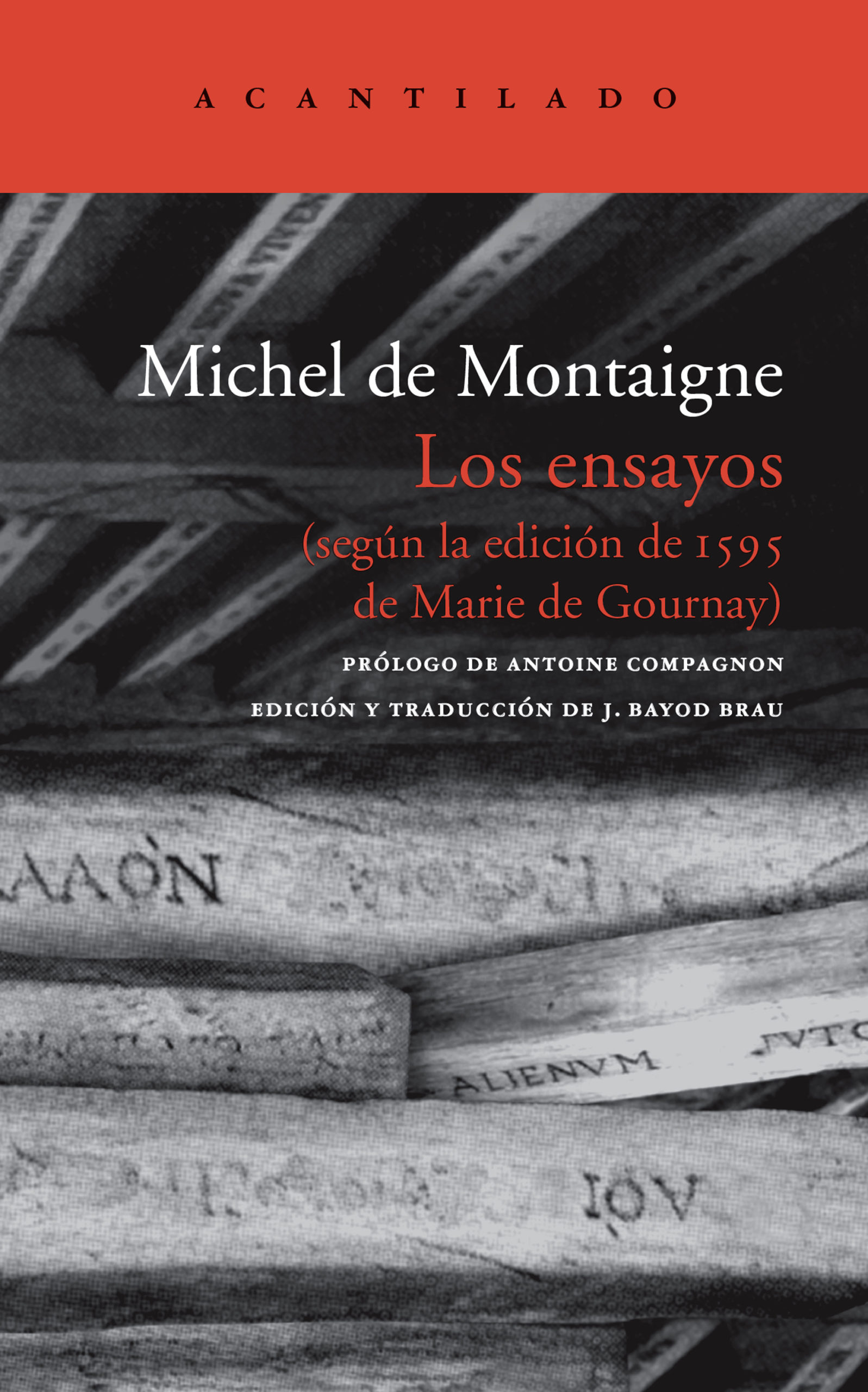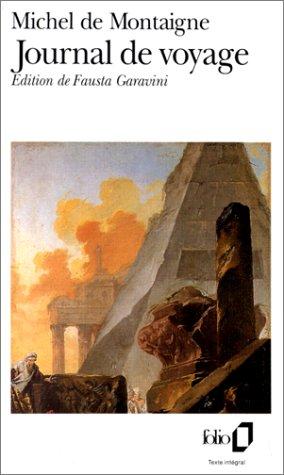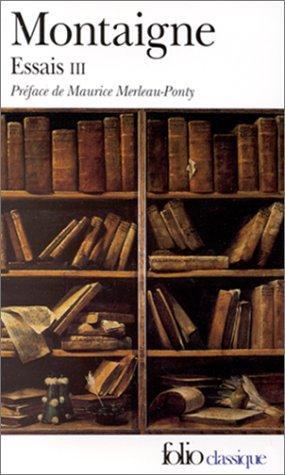Michel Eyquem de Montaigne ( mon-TAYN; French: [miʃɛl ekɛm də mɔ̃tɛɲ]; 28 February 1533 – 13 September 1592), also known as Lord of Montaigne, was one of the most significant philosophers of the French Renaissance, known for popularizing the essay as a literary genre. His work is noted for its merging of casual anecdotes and autobiography with intellectual insight. His massive volume Essais contains some of the most influential essays ever written. Montaigne had a direct influence on Western writers including Francis Bacon, René Descartes, Blaise Pascal, Montesquieu, Edmund Burke, Voltaire, Jean-Jacques Rousseau, David Hume, Edward Gibbon, Virginia Woolf, Albert Hirschman, William Hazlitt, Ralph Waldo Emerson, John Henry Newman, Karl Marx, Sigmund Freud, Alexander Pushkin, Charles Darwin, Friedrich Nietzsche, Stefan Zweig, Eric Hoffer, Isaac Asimov, Fulton Sheen and possibly, on the later works of William Shakespeare. During his lifetime, Montaigne was admired more as a statesman than as an author. The tendency in his essays to digress into anecdotes and personal ruminations was seen as detrimental to proper style rather than as an innovation, and his declaration that, "I am myself the matter of my book", was viewed by his contemporaries as self-indulgent. In time, however, Montaigne came to be …
Michel de Montaigne
Informations sur l’auteur ou l’autrice
- Pseudonymes :
-
Mişel de Monten, מיכאל די־מונטין, モンテェニュ, et 83 autres
Michiel de Montanje, Montanus, مائیکل ڈی مونتین, Michel di Montagna, ミシェル・ド モンテーニュ, Michel Montaigne, Монтан, Мішэль дэ Мантэнь, میشێل دێ مۆنتێن, Miquèl de Montanha, Мишель Эйкем Де Монтень, Michael von Montaigne, Michał z Montaigne, מיכאל די מונטין, میشل دو مونتین, Misel d̲e Montaini, Мишель де Монтень, Michel Monten, Michel E. de Montaigne, Mišelʹ Montén, ... de Montaigne, Мишел де Монтењ, Michel Eyquem Montaigne, Mihailo Montaigne, מישל אקם דה מונטן, מישל דה מונטן, মিশেল দ্য মন্টেইন, Мишел дьо Монтен, Мішель де Монтень, Michael de Montaigne, Montaigne, Мишель Де Монтень, Mikhaĭlo Montanʹe, Michel Eyquem de Montaigne, Montagna, Montagne, Μισέλ ντε Μονταίν, Michael Montanus, Michel de Montaigne, Mišel de Montenj, M. de Montaigne, Mišels de Monteņs, Монтань, Michail Monten', Монтень, Mišels de Montēņs, Montaigne Eyquem de, Montēnyu, ميشيل مونتاني،, ... de la Montaigne, M モンテーニュ, Michel Di Montagna, Michel de la Montaigne, Michał Montaigne, Mišelis de Montenis, Michael von Montagne, Michel Eyguem de Montaigne, Michel Equem de Montaigne, Michel Eugene de Montaigne, ميشيل دي مونتين, מישל דה־מונטן, 미셸 드 몽테뉴, 米歇爾·德·蒙泰涅, Michel Ayquem de Montaigne, מישל דה מונטין, မွန်တိန်း အမ်၊ အီ, Միշել դը Մոնտեն, მიშელ დე მონტენი, מישל אקס דה מונטן, Монтэнь, ミシェル・ド・モンテーニュ, Michel de Monten', Michael Montaigne, Mishelʹ Montenʹ, میشل دو مونتنی, मान्तेन, М. де Монтень, Мишель Монтень, Montenʹ Michelʹ, מישל דה מונטיין, Michel de Montagne, Michel De Montaigne, Michiel di Montagna - Naissance :
- 28 février 1533
- Décès :
- 13 septembre 1592
Liens externes
Michel Eyquem de Montaigne ( mon-TAYN; French: [miʃɛl ekɛm də mɔ̃tɛɲ]; 28 February 1533 – 13 September 1592), also known as Lord of Montaigne, was one of the most significant philosophers of the French Renaissance, known for popularizing the essay as a literary genre. His work is noted for its merging of casual anecdotes and autobiography with intellectual insight. His massive volume Essais contains some of the most influential essays ever written. Montaigne had a direct influence on Western writers including Francis Bacon, René Descartes, Blaise Pascal, Montesquieu, Edmund Burke, Voltaire, Jean-Jacques Rousseau, David Hume, Edward Gibbon, Virginia Woolf, Albert Hirschman, William Hazlitt, Ralph Waldo Emerson, John Henry Newman, Karl Marx, Sigmund Freud, Alexander Pushkin, Charles Darwin, Friedrich Nietzsche, Stefan Zweig, Eric Hoffer, Isaac Asimov, Fulton Sheen and possibly, on the later works of William Shakespeare. During his lifetime, Montaigne was admired more as a statesman than as an author. The tendency in his essays to digress into anecdotes and personal ruminations was seen as detrimental to proper style rather than as an innovation, and his declaration that, "I am myself the matter of my book", was viewed by his contemporaries as self-indulgent. In time, however, Montaigne came to be recognized as embodying, perhaps better than any other author of his time, the spirit of freely entertaining doubt that began to emerge at that time. He is most famously known for his skeptical remark, "Que sçay-je?" ("What do I know?", in Middle French; now rendered as Que sais-je? in modern French).


